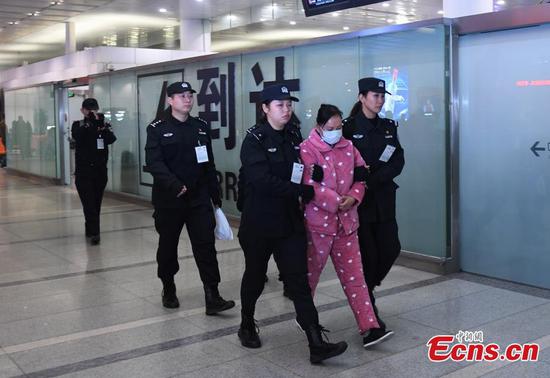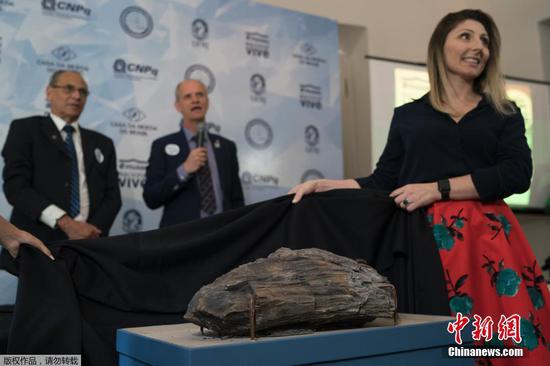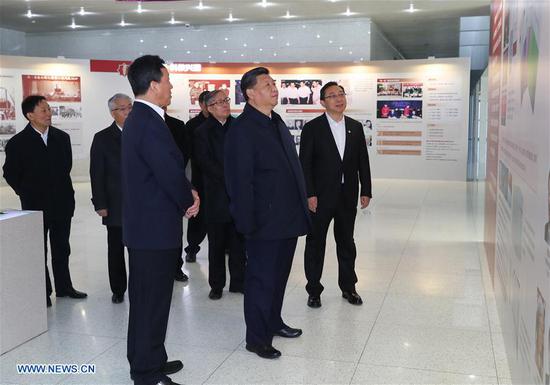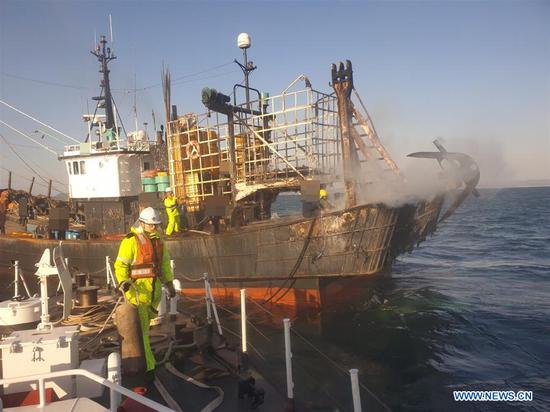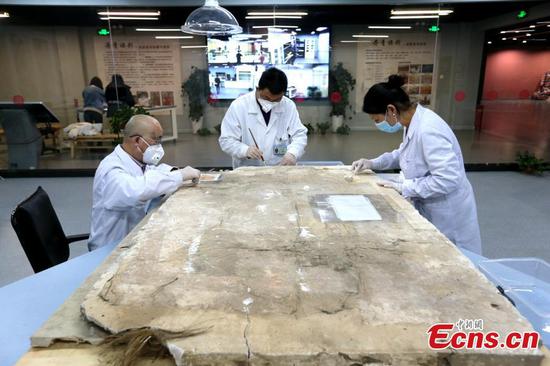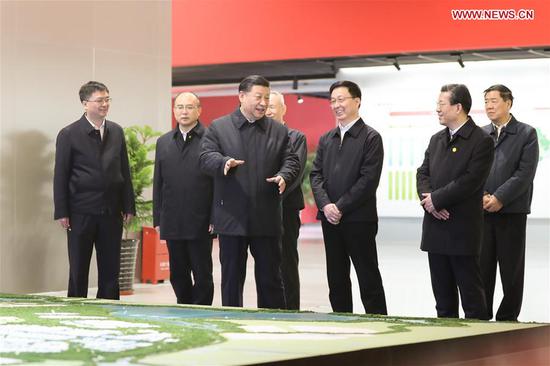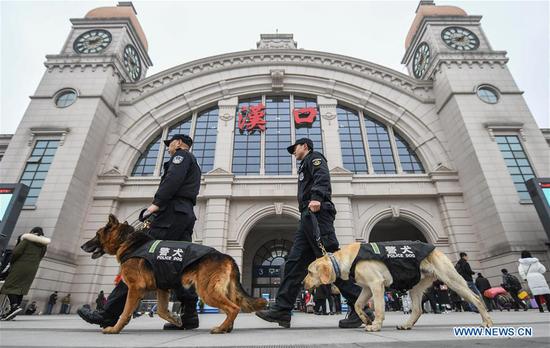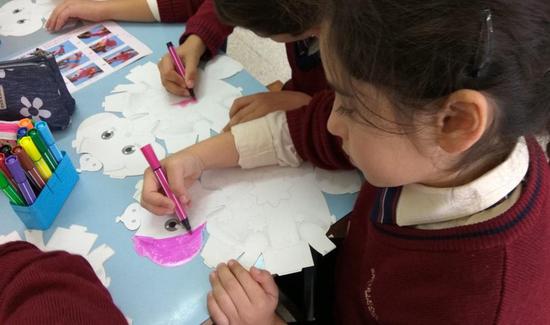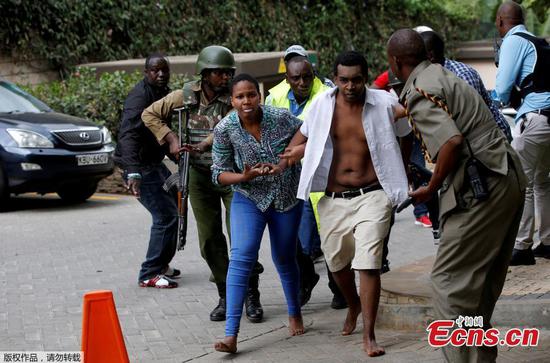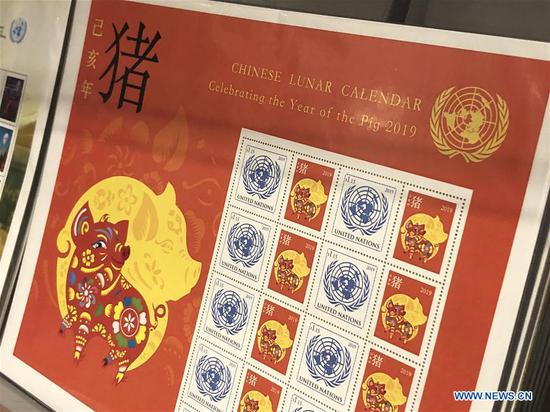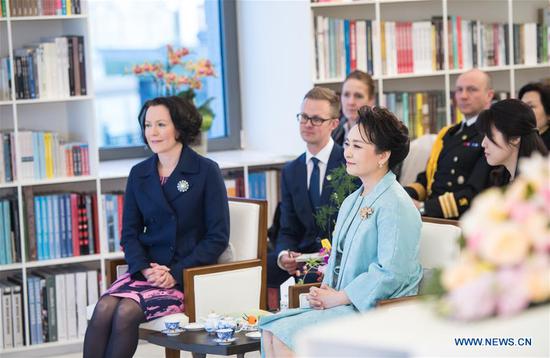Beleaguered leader asks for cross-party talks in attempt to break the deadlock
British Prime Minister Theresa May is reaching out to rebels in her party and the leaders of rival parties following a week in which she suffered a record defeat in Parliament and weathered an attempt to end her government.
After narrowly surviving a "no-confidence" vote on Wednesday triggered by her handling of the United Kingdom's pending departure from the European Union, May said she wanted to move the Brexit issue forward by working with her opponents.
"It will not be an easy task, but MPs know they have a duty to act in the national interest, reach a consensus and get this done," she said from outside her Downing Street residence after seeing off the no-confidence vote by 325 votes to 306.
Had she lost, a general election would have been triggered against the backdrop of the looming March 29 date on which the UK is scheduled to leave the European Union.
May said she still plans to "deliver on the verdict of the British people", who chose by a narrow margin in a referendum in 2016 to leave the EU.
She had negotiated a divorce deal with the bloc that sets out the terms of the UK's exit but it was rejected in Parliament by 230 votes, the heaviest ever defeat for a sitting government.
For some members of Parliament, May's deal left the UK too close to the EU after Brexit, for others, it left them too far apart.
Now, May says, she is seeking the "widest possible views across Parliament" on a Brexit deal everyone can live with.
But Jeremy Corbyn, leader of the opposition Labour Party, has said he will not talk to her while the possibility of a no-deal Brexit is on the table.
May said: "I am disappointed that the leader of the Labour Party has not, so far, chosen to take part, but our door remains open."
The Independent newspaper said some senior Conservative Party ministers were bypassing Corbyn and talking directly to members of his top team in an apparent attempt to "divide and rule".
May said she had constructive talks with smaller parties, including the Lib Dems, Scottish National Party, and Plaid Cymru, and will speak with rebel MPs in her party and the Democratic Unionist Party, whose 10 MPs have worked closely with the Conservative Party in the past.
Conservative Party chairman Brandon Lewis said on BBC Radio 4's Today program on Thursday that the government is willing to compromise in many areas, but not on May's "red line" issues.
Political pundits believe the UK will now need to seek an extension of Article 50, the two-year mechanism that means the UK is scheduled to leave the EU on March 29. They say an extension will be needed if May is to continue negotiations with the EU after building a compromise at home.
May said on Thursday that she will publish her new EU withdrawal plan on Monday and that there will be a debate on it before a new vote is held in Parliament on Tuesday, Jan 29.
The Times newspaper said on Thursday that senior Conservative MP Andrea Leadsom and other Brexiteers want May's "plan B" to include a promise to impose a time-limit on the Northern Irish backstop, which is a fallback plan aimed at avoiding a hard border between Northern Ireland and the Irish Republic and which was the most controversial part of May's Brexit withdrawal bill that was defeated earlier this week.
And, in a letter in the Times newspaper on Thursday, more than 170 leading business figures called on May and Corbyn to support a second referendum on whether the UK should withdraw from the EU.
"The priority now is to stop us crashing out of the EU with no deal at all," they wrote.
"The only feasible way to do this is by asking the people whether they still want to leave the EU."









